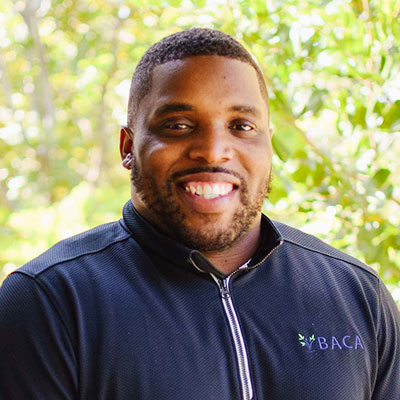Quick Answer: A parent should choose a psychiatrist who specializes in adolescent and child psychiatry because they spend over a decade receiving specialized training to support youth and teens with mental health disorders. This makes them uniquely qualified to help children and teens who need mental health treatment.
Key Points:
- Psychiatrists have the most extensive training among all mental health providers.
- All psychiatrists are medical doctors (MDs) or doctors of osteopathy (DOs) who must graduate from medical school before completing residencies, internships, or fellowships in mental health.
- As physicians, psychiatrists can prescribe and monitor psychiatric medications, which counselors, therapists, and clinical psychologists cannot.
- The time and effort required for a doctor to achieve licensure in adolescent/child psychiatry means they probably have a deep commitment to supporting the mental health needs of youth, adolescents, and their families.
Adolescent Psychiatrist, Child Psychiatrist, Adult Psychiatrist: What are the Differences?
When your adolescent or child needs professional mental health support, there are four primary reasons to choose a provider who specializes in adolescent or child psychiatry:
1. Training and Education
Adolescent and child psychiatrists receive focused training in providing mental health support to people under age 18.
- After a physician completes their basic, four-year training in medical school, they choose a specialty and spend another 4-6 years training in that specialty.
- Physicians who choose general psychiatry complete residencies and/or fellowships – i.e. the training after medical school – first in adult psychiatry and then in the subspecialty of their choice, where they learn specific details about the unique needs of the population associated with each subspecialty.
- The American Board of Medical Specialties (ABMS) identifies eight subspecialties under the general psychiatry specialty:
- Addiction psychiatry
- Child and adolescent psychiatry
- Clinical neurophysiology
- Consultation-liaison psychiatry
- Forensic psychiatry
- Geriatric psychiatry
- Pain medicine
- Sleep medicine
- Physicians who choose child and adolescent psychiatry must complete a four-year residency in child and adolescent psychiatry. Many then continue their specialized training by completing a fellowship that typically lasts two years.
- At the end of a residency or fellowship, a candidate must become board-certified, and pass certification exams administered by the American Board of Psychiatry and Neurology (ABPN) under the auspices of the ABMS.
2. Communication Style
Psychiatry, psychotherapy, and counseling revolve around what’s called a therapeutic alliance, defined by the American Psychological Association (APA) as follows:
“…a cooperative working relationship between client and therapist, comprised of bonds, goals, and tasks. Bonds are constituted by the core conditions of therapy, the client’s attitude toward the therapist, and the therapist’s style of relating to the client; goals are the mutually negotiated, understood, agreed upon, and regularly reviewed aims of the therapy; and tasks are the activities carried out by both client and therapist.”
The foundational components of a positive therapeutic alliance include:
- Respect
- Empathy
- Safety
- Trust
Adolescent and child psychiatrists learn to tailor their communication style to match the developmental stage of the adolescent or child in their care, which is essential. Attention to the nuances of how adolescents and children hear, process, and act on new information can have a significant impact on overall treatment success. A good rapport is the core of a powerful treatment alliance adolescent and child psychiatrists become experts in establishing a good rapport with young patients by focusing on – and being mindful of – their communication style.
3. Therapeutic Techniques
Adult psychiatrists learn a set of techniques that work and are appropriate for people over age 18, but adolescents and children – specifically children – need a provider that can adapt those techniques to their specific needs. The following factors influence how a provider applies a therapeutic technique:
- Cognitive development
- Emotional development
- Motor development
- Developmental delays, challenges, or differences
- Moral/ethical development
- Personal level of awareness/self-awareness
A mismatch between developmental stage and therapeutic content can delay or impair the success of the treatment. In addition to adapting existing therapeutic techniques developed for adults, such as cognitive behavioral therapy (CBT), dialectical behavioral therapy (DBT), applied behavioral analysis (ABA), adolescent and child psychiatrists learn techniques developed for young people, including:
- Play therapy involves the use of play – games, imagination, art – to explore thoughts, emotions, and behaviors.
- Expressive therapies involves the intentional use of artistic expression, including visual art, music, drama, and writing, to explore thoughts, emotions, and behaviors.
When the technique matches the diagnosis and is supported by a strong therapeutic alliance, the chance of treatment success increases dramatically. Experts in adolescent and child psychiatry learn – through training and experience – how to create the optimal combination of these components.
4. Family Involvement
In some cases, parents and families participate in treatment for mental health disorders in adults, but in almost all cases, successful child and adolescent psychiatry and mental health treatment involves the active participation of parents or primary caregivers.
Why?
When a child or teen has a mental health disorder, it has a direct impact on the entire family. The opposite is also true: the family has a direct impact on a child or teen with a mental health disorder. During treatment, family participation helps to restore balance in the home that may have been disrupted by the presence of a mental illness. The more parents, siblings, and other family members learn about mental health and mental illness, the better they can support the person in treatment.
In addition, the basic tenets of family systems theory teach us that every individual develops within a set of relationships – a system – that we call a family, those family relationships/systems contribute to the way that individual develops, and therefore, the characteristics that individual develops are related to factors unique to that family system.
In other words, to fully understand what’s going on with a child or adolescent, it’s imperative to understand their family dynamic. To meet this imperative, adolescent and child psychiatrists receive special training in family systems theory and family therapy, which enables them to identify aspects of the family dynamic that affect the mental health of the adolescent or child. This detailed knowledge helps a psychiatrist understand both the circumstances around development of the mental illness, and the best approach for treatment and recovery from that mental illness.
Unique Needs and Tailored Treatment: Support for Children and Teens
The simplest answer to the question we pose in the title of this article – Why Should a Parent Choose a Psychiatrist Specializing in Adolescent or Child Psychiatry? – is this:
Those are the types of psychiatrists that have the best chance of offering your adolescent or child the support they need to heal.
Think about it this way:
When you have a problem with your skin, you see the type of doctor who specializes in skin: a dermatologist. Likewise, when you have problems with your bones or joints, you go to see the type of doctor who specializes in bones or joints: an orthopedist. And when you have a problem with your mental health, you go to a doctor who specializes in mental illness: a psychiatrist.
But in order to complete the analogy, we need to take it one step further. When you have a problem with your knee for instance, you go to a specific type of orthopedist: one who specializes in knees and knee surgeries.
Therefore, when your adolescent or child has a problem with their mental health, you take them to a specific type of psychiatrist: one who specializes in adolescent and child psychiatry.
It makes sense: where illness and health are concerned, you go to the person who’s an expert in that area: you don’t go to an allergist for a sprained ankle, and you don’t go to an internal surgeon for a head cold. You match the provider to your needs. That’s exactly why, if you adolescent or child needs professional mental health support, you take them to the specialist who’s an expert in that field: an adolescent or child psychiatrist.


